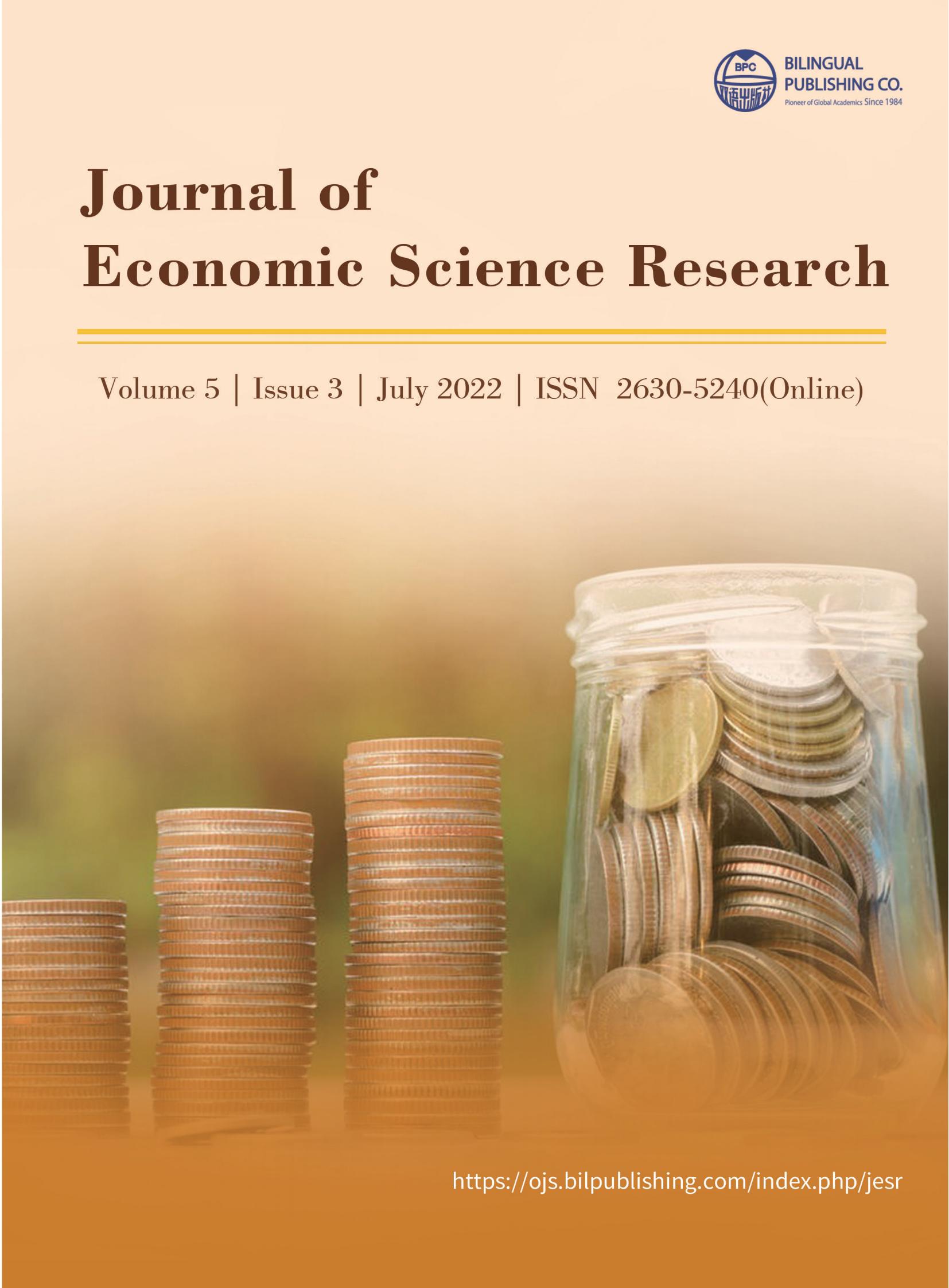“Waste-free Cities” Construction and Carbon Emission Reduction in China: Based on the Perspective of Circular Economy
DOI:
https://doi.org/10.30564/jesr.v5i3.5035Abstract
Solid waste and carbon dioxide are important elements of environmental governance. Under the background of carbon peaking and carbon neutrality goals, the research on whether and how to promote the construction of “no waste cities” and carbon emission reduction is of great significance in China. The generation of solid waste and greenhouse gases such as carbon dioxide has the same origin, which can be well coordinated to promote environmental governance.
Keywords:
Environmental tax; Waste-free cities; Solid wasteReferences
[1] World Bank report. https://openknowledge.worldbank.org/handle/10986/30317.
[2] Ministry of Ecology and Environment’s National Waste-Free Cities Pilot Launch https://www.mee.gov.cn/home/ztbd/2020/wfcsjssdgz/
[3] dcsj/wfcszcwj/202006/t20200602_782280.shtml.
[4] Cole, C., Osmania, M., Quddusa, M., 2014. Towards a zero waste strategy for an English local authority. Resources, Conservation and Recycling. 89(5), 64-75.
[5] Defra, 2011. Government review of waste policy in England 2011.
[6] Pauli, G., Mshigeni, K., 1998. First five years of action: The zero emissions research and initiatives, 1994-1999. Windhoek: University of Namibia.
[7] Pietzsch, N., Ribeiro, D.J.L., Medeiros, J.F., 2017. Benefits, challenges and critical factors of success for zero waste: A systematic literature review. Waste Management. 67(9), 324-353.
[8] Lehmann, S., 2012. Urban metabolism and the zero-waste city: transforming cities through sustainable design and behavior change. Asian Development Bank. 108-135.
[9] Zaman, A.U., Lehmann, S., 2013. The zero waste index: a performance measurement tool for waste management systems in a ‘zero waste city’. Journal of Cleaner Production. (50), 123-132.
[10] Zhang, Y.Y., Jing, Y.Sh., Gao, Q.X., et al., 2011. China’s urban solid waste treatment and greenhouse gas emission reduction enlightenment. Environmental Science Research. (08).
Downloads
Issue
Article Type
License
Copyright and Licensing
The authors shall retain the copyright of their work but allow the Publisher to publish, copy, distribute, and convey the work.
Journal of Economic Science Research publishes accepted manuscripts under Creative Commons Attribution-NonCommercial 4.0 International License (CC BY-NC 4.0). Authors who submit their papers for publication by Journal of Economic Science Research agree to have the CC BY-NC 4.0 license applied to their work, and that anyone is allowed to reuse the article or part of it free of charge for non-commercial use. As long as you follow the license terms and original source is properly cited, anyone may copy, redistribute the material in any medium or format, remix, transform, and build upon the material.
License Policy for Reuse of Third-Party Materials
If a manuscript submitted to the journal contains the materials which are held in copyright by a third-party, authors are responsible for obtaining permissions from the copyright holder to reuse or republish any previously published figures, illustrations, charts, tables, photographs, and text excerpts, etc. When submitting a manuscript, official written proof of permission must be provided and clearly stated in the cover letter.
The editorial office of the journal has the right to reject/retract articles that reuse third-party materials without permission.
Journal Policies on Data Sharing
We encourage authors to share articles published in our journal to other data platforms, but only if it is noted that it has been published in this journal.




 Sheng Wang
Sheng Wang

